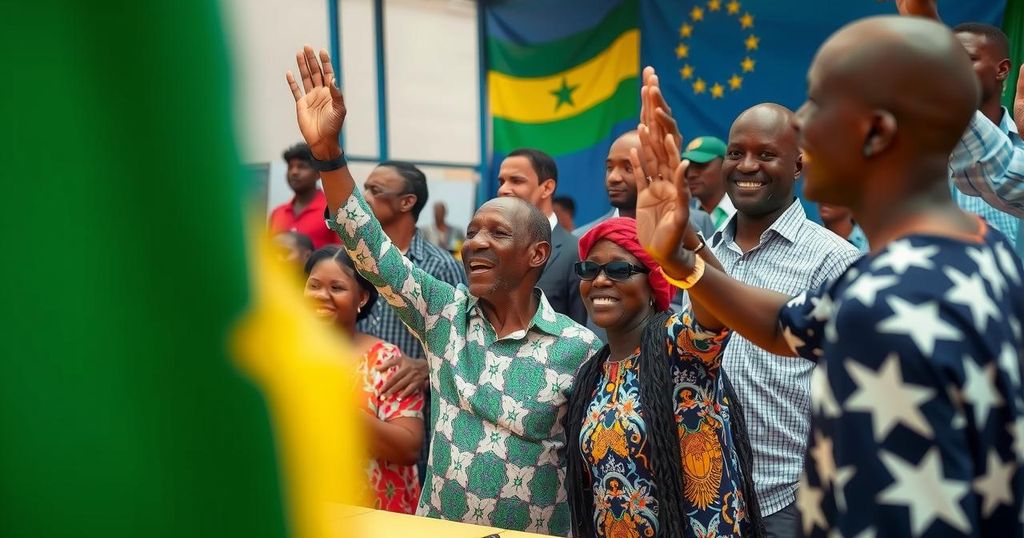Senegal’s Elections: A Demonstration of Democratic Resilience
Senegal’s legislative elections on November 17, following a turbulent political period, demonstrated strong voter engagement and a commitment to democratic governance. President Bassirou Diomaye Faye’s election marked a peaceful transition of power, with a significant turnout of 61.3%. Despite existing challenges such as corruption, Senegal exemplifies resilience through its democratic institutions and emphasizes the importance of citizen participation in upholding democracy.
Senegal recently held a significant legislative election on November 17, following a snap announcement by President Bassirou Diomaye Faye. This election was part of a broader transition, initiated after former president Macky Sall’s controversial decision to delay the presidential election, which sparked mass protests and highlighted the vulnerabilities within Senegal’s democratic framework. The return to elections signifies a restoration of political normalcy and reflects the resilience of Senegal’s democratic principles. The importance of these elections cannot be overstated. They are indicative of Senegal’s commitment to upholding democratic governance and the rule of law. The transition from Sall, who opted against seeking a third term, to Faye’s administration showcases a peaceful shift in political power, reinforcing the effectiveness of the democratic process in the nation. Notably, this election saw a voter turnout of 61.3%, emphasizing strong civic engagement among the populace. In previous years, Senegal faced considerable unrest, particularly due to legal disputes involving opposition leader Ousmane Sonko and the subsequent societal unrest it triggered. However, the recent elections, characterized by high voter participation and relatively peaceful conduct, exhibit the citizens’ dedication to institutionalizing democracy. The ruling party, Pastef, appears to have secured a majority, with many opposition leaders conceding and congratulating the new administration, thereby reinforcing the legitimacy of the election outcomes. Despite Senegal’s progress, challenges remain, including issues such as corruption, governance weaknesses, and the influence of entrenched political structures. Nonetheless, these challenges have been acknowledged, and President Faye has vowed to provide transparent governance and break from past practices that contributed to institutional decay. Comparatively, Senegal has fared better than some of its African counterparts facing severe democratic instabilities. To ensure the resilience of democracy in Senegal, the state must adhere to constitutional limits, promote citizen engagement, and fight against corruption. Upholding the rule of law, maintaining judicial independence, and ensuring electoral integrity are essential steps in reinforcing public trust in government institutions. Furthermore, promoting educational initiatives can empower citizens regarding their roles and responsibilities, contributing to a more vibrant democratic culture. The peaceful transition marked by Faye’s electoral victory demonstrates that effective democratic processes can lead to positive political change in Senegal. With heightened civic engagement and demonstrated electoral integrity, Senegal exemplifies how a nation can navigate through political turbulence and emerge with a reinforced democratic commitment. Senegal’s recent electoral developments offer valuable lessons for other nations. They underscore the importance of political engagement and the potential for positive change through democratic processes. Emphasizing the need for transparency, accountability, and citizen participation may well position Senegal as a model for democracy in an often tumultuous continental context.
Senegal’s recent electoral dynamics unfolded in a context marked by political upheaval when former president Macky Sall postponed a presidential election, leading to widespread protests. The country has a long-standing tradition of democratic governance, but recent events underscored vulnerabilities within its institutions. The snap legislative elections called by the new president have been pivotal, indicating a commitment to restore and strengthen electoral processes after a period of unrest. This cycle of elections serves as a critical touchpoint for understanding the evolving political landscape in Senegal and the nation’s ongoing efforts to fortify its democratic institutions.
The legislative elections in Senegal signify a remarkable stride toward reinforcing democratic practices in the country. Despite previous challenges characterized by protests and controversies, the peaceful transition of power to President Faye exemplifies the effectiveness of electoral engagement. With a focus on transparency, avoidance of corruption, and civic education, Senegal’s commitment to sustaining democracy positions it favorably within a broader African context that continues to face numerous governance challenges.
Original Source: theconversation.com




Post Comment